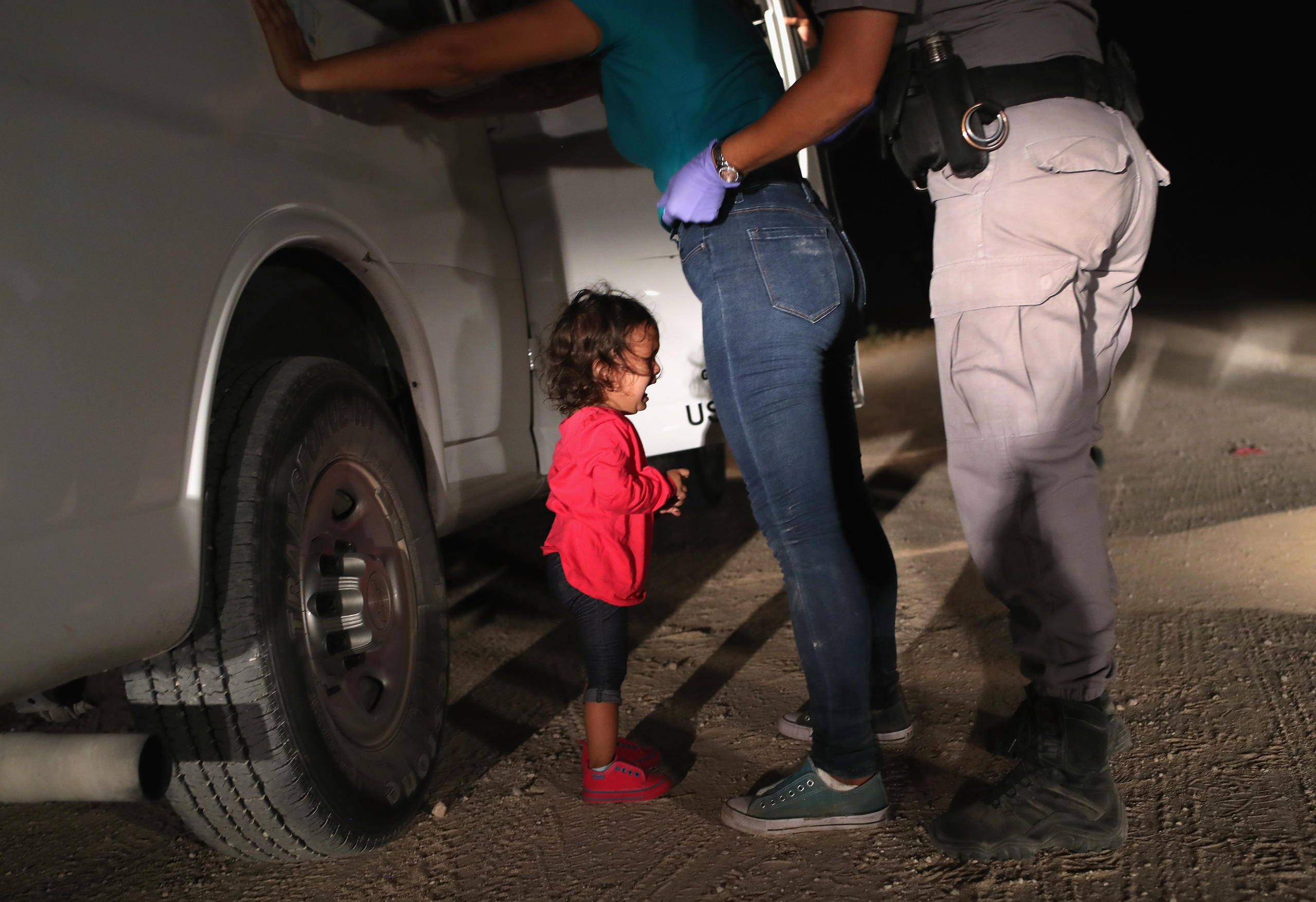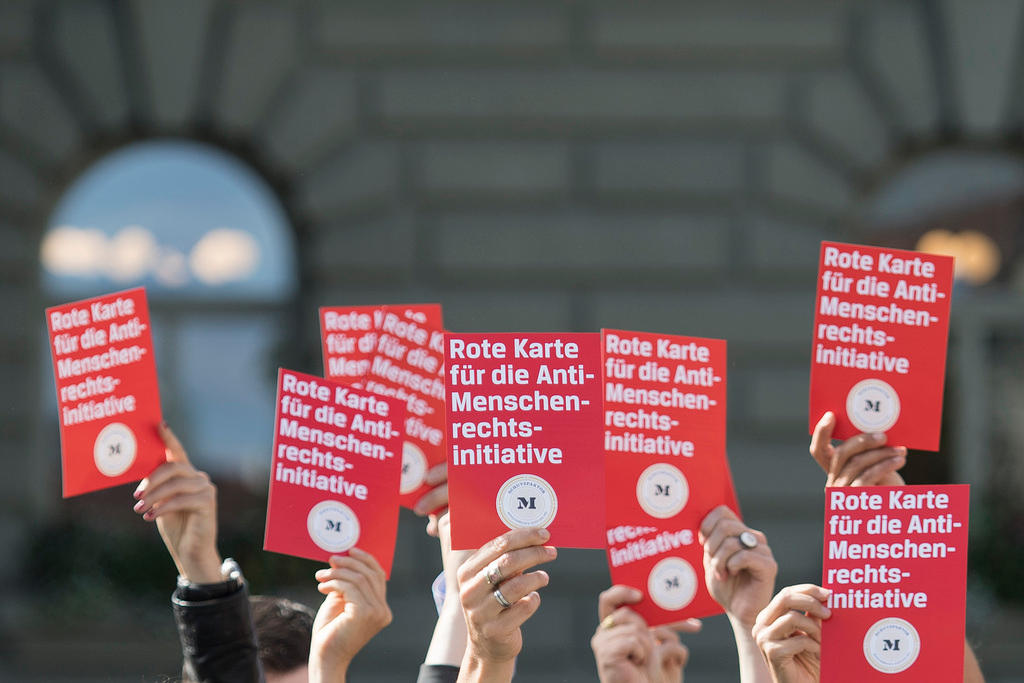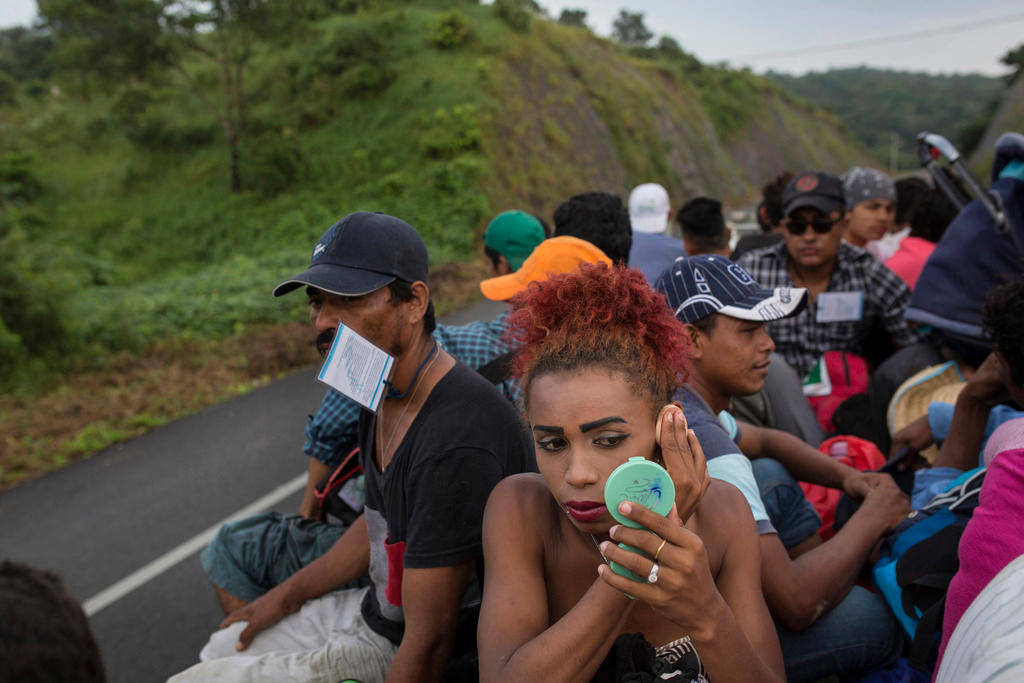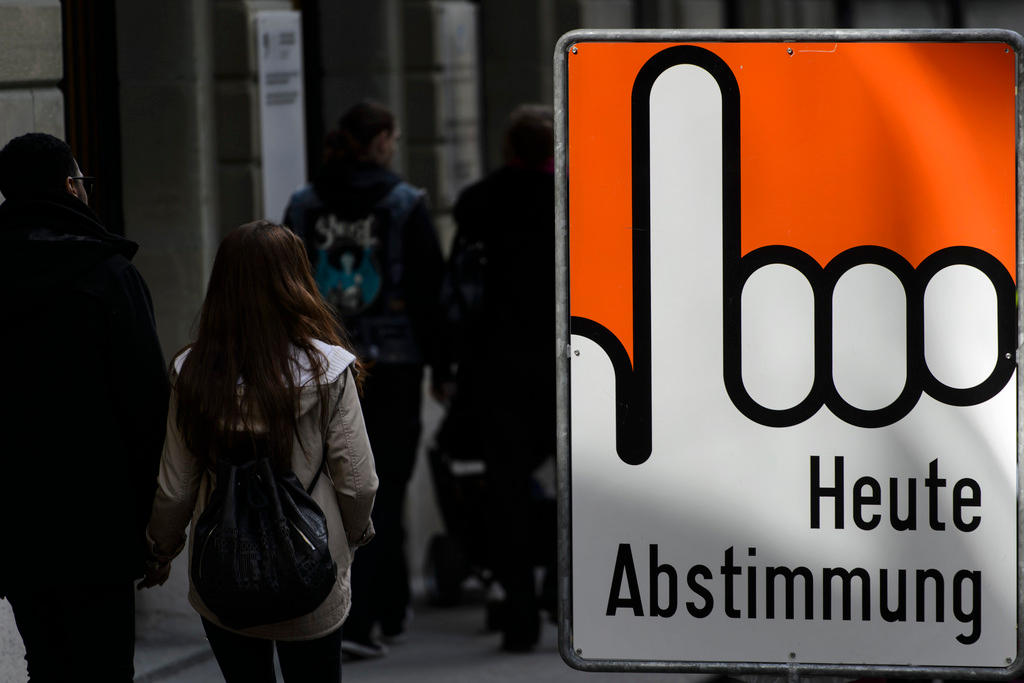UN migration pact: A hard landing for ‘soft law’

The uproar caused by the UN migration pact may have been largely political, but it also raises questions about the legitimacy of informal international agreements.
For a non-binding document that looks more like a gentlemen’s agreement than a Faustian bargain, the UN’s Global Compact for MigrationExternal link (approved in Marrakesh on December 10 by 164 countries) caused a surprising furore.
The US backed out, after having been one of the instigators in the first place. The Swiss parliament, piqued about its perceived under-consultation, demanded the final say on the pact, forcing the government to postpone signing. In Belgium, street protests and coalition divisions brought down the government and the prime minister.
Clearly the disproportionate opposition is more due to the hot political potato of migration than the concrete impact of the compact’s 23 objectivesExternal link (as well as non-binding, they are far from revolutionary). Fears around migration are simmering, more and more people are unafraid to speak about them, and many politicians are happy to stir it up.
But the compact has also brought into focus, particularly in Switzerland, the issue of such non-binding international agreements – or ‘soft law’, a term moving slowly from academia to media. Is such soft legislation, often negotiated and agreed by governments (and sometimes private actors) without parliamentary approval, a threat to democratic legitimacy?
What is it?
Simply put, soft law refers to agreements that fall somewhere between simple declarations and ‘hard’ (binding) legislation or treaties. But, on the international level at least, it can take a few different forms, says Walter Kälin, Professor Emeritus of international law at the University of Bern.
A ‘roadmap’ form, such as the migration compact, comes about when nations realise that a problem exists that they can only solve together, and so they agree to outline the major steps needed to tackle it. Other well-known examples of this type include the UN’s Agenda 2030 for Sustainable Development and the Paris Climate Accord.
Further forms include guidelines for private actors (the OECD’s guidelines for multinational enterprises and corporate governance, for example); non-binding interpretations of broad hard law (e.g. the agreement of minimum standards for prisoners); and technical standards issued for certain industries (air traffic controllers, for example).

More
Why do we need the Global Compact for Migration?
As for its legal standing, soft law often (depending on the nation) does not have to be ratified by parliament – this step is reserved for binding international treaties. And when it comes to teeth and enforcement, Kälin says, it depends on the level of oversight built into the agreement: some soft laws include periodic review mechanisms, some rely solely on peer pressure.
So why sign them at all? Well, aside from the normative symbol of putting your country’s name along with others on a global mission statement, non-binding laws are increasingly the only solutions that divided nations can come up with.
Indeed, since the 1990s, the fragmentation of global power and the complexity of transnational issues (take internet governance) has led to a “proliferation” of soft law, Kälin says. Without the “disciplining” leadership of the US and Russia, nations now all want their piece of the pie. Such laws are easier to negotiate, as well as easier to opt out of, and easier to slip past national parliaments.
Beyond concrete impact, the ‘mere’ act of agenda-setting also doesn’t come without power: by defining parameters for best practice, soft law can provide the foundations for future discourse, as well as a template for spin-off hard laws. In some cases, it can morph into hard law itself – the 1948 Universal Declaration of Human Rights is perhaps the best-known example.
Presumably, this is also why some get so het up about agreements on issues like migration. If the ‘wrong’ principles are agreed now, future policy could follow, the logic goes. In the most extreme hypothesis, says former UN Refugee Agency director Alexandre CasellaExternal link, nations worry that the non-binding objectives of the migration pact could be a step towards a future “right to immigration” – not a politically palatable idea in many capitals.
Strength in weakness
But is all this really new? Alexandre Flückiger, Professor of public law at the University of Geneva, thinks not. He quotes the 19th-century liberal essayist from Lausanne, Benjamin Constant, who criticised the “soft, skilful, indirect” ways in which governments acted upon public opinion – in 1820.
The difference now, says Flückiger is that legal scholars are starting to take more notice of such ‘informal’ norm-setting. Before, they “for too long left to sociologists, political scientists, and psychologists the work of studying how non-legal norms directed the behaviour of individuals”.
Flückiger already raised these points in 2012, when he wrote about soft lawExternal link in response to an unsuccessful Swiss initiative to give more say to the people in ratifying international agreements. “A new global legal order is forming,” he said, whose impact on citizens and businesses could be “very constraining, in some cases even more than international treaties”.
This “informal” order could present a challenge for democracy, he said, even though classic hard law-making remains legitimate.
“When it comes to the process of soft law crystallising into hard law, states and citizens maintain full sovereignty,” he told swissinfo.ch. Though the trickle-down process from soft to hard represents a form of “political Darwinism” in which the most useful ideas are maintained, this cannot happen without the approval of parliaments.

More
‘Swiss law first’ initiative given short shrift at polls
The major power of such an informal method thus resides in its ideational force, rather than direct application; or, as he puts it, “its strength is in its weakness”.
Kälin is also circumspect about whether soft law, and its spread, will lead to more democratic headaches. However, he makes it clear that while giving parliament a more substantial say is one thing, putting such non-binding proposals to referendum is a step too far.
“This would be giving too much importance to it,” he says. It would also be tough to manage. He agrees with outgoing Swiss Transport Minister Doris Leuthard, who said recently that soft law will become even more important at the multilateral level in the coming years. In this case, which agreements would be put to the people and which not?

In compliance with the JTI standards
More: SWI swissinfo.ch certified by the Journalism Trust Initiative





You can find an overview of ongoing debates with our journalists here. Please join us!
If you want to start a conversation about a topic raised in this article or want to report factual errors, email us at english@swissinfo.ch.